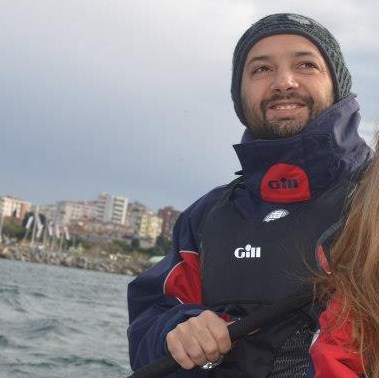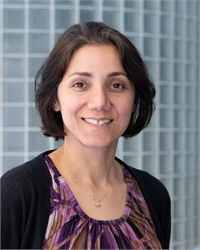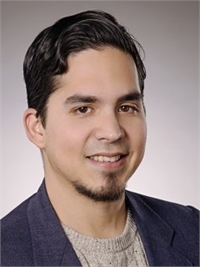Latest Past Events
Multiscale Modeling and Optimization in Photonic Devices
Dr. Rüştü U. Tok COMSOL, Inc.In this talk, two challenging problems of photonic device modeling will be addressed: 1) multiscale modeling and 2) optimization. When it comes to model an optically large system with subwavelength features, a multiscale simulation scheme is required. In other words, your simulation tool should be able to handle both the interaction of light at sub-wavelength scale and propagation of light in large distances. In the first part of this talk, a multiscale simulation (a special type of Multiphysics simulation) scheme which combines full wave and ray optics approaches will be demonstrated. On the other hand, for most of the photonic component design processes, the goal is to match a predefined component functionality, for most of the cases, a predefined spectral response. In the second part of this talk, an optimization scheme to design photonic components will be demonstrated.Rüştü Umut Tok joined COMSOL in 2011 as a Senior Applications Engineer. His area of expertise is RF and Wave Optics. He has a B.Sc. degree in Physics, M.Sc. degree in Biomedical Engineering and Ph.D. degree in Mechatronics Engineering. After his Ph.D., he joined UCLA Electrical Engineering Department as a postdoctoral researcher. During his career he involved in several research projects which covers different aspects on electromagnetics and optics such as broadband plasmonic antenna array surfaces, ULF mechanical antennas, ferrite materials and devices, light propagation in tissue.Registration is not required for this online event.
Opportunities in Non-Hermitian and Topological Photonics: Optics at an Exceptional Point
Prof. Mercedeh Khajavikhan University of Southern CaliforniaIn recent years, non-Hermitian degeneracies, also known as exceptional points (EPs), have emerged as a new paradigm for engineering the response of optical systems. At such points, an N-dimensional system can be represented by a single eigenmode. As a result, these points are associated with abrupt phase transitions in parameter space. Among many different non-conservative photonic configurations, parity-time (PT) symmetric systems are of particular interest since they provide a powerful platform for systematically exploring the physics and consequently utilizing the exceptional points. In this talk, I will review some of our recent works in the area of non-Hermitian active photonics. For example, in a series of papers, we have demonstrated how the generation and judicial incorporation of these points in laser systems can result in unexpected dynamics, unusual linewidth behavior, and improved modal response. On the other hand, biasing a photonic system at an exceptional point can lead to orders of magnitude enhancement in sensitivity- an effect that can enable a new generation of ultrasensitive optical sensors on-chip. Non-Hermiticity can also be used as a means to promote an edge mode in photonic topological insulator lattices. Our most recent result on using non-Hermiticity to engineer interaction dynamics in optical lattices will be presented along with its applications in designing a new class of fully reconfigurable lasers as well as implementing novel topological models.Professor Mercedeh Khajavikhan is an Associate Professor and IBM Early Career Chair at the Electrical Engineering Department of the University of Southern California. She received her Ph.D. in Electrical Engineering from the University of Minnesota in 2009. Subsequently, she joined the University of California in San Diego as a postdoctoral researcher, where she worked on the design and development of nanolasers, plasmonic devices, and silicon photonics components. In August 2012, she started her career as an Assistant Professor in the College of Optics and Photonics (CREOL) at the University of Central Florida (UCF), working primarily on novel phenomena in active photonic systems. She moved to USC in August 2019. She is the recipient of the NSF Early CAREER Award in 2015, the ONR Young Investigator Award in 2016, the DARPA Young Faculty Award in 2018, and DARPA Director’s Fellowship in 2020. She is an OSA fellow.Register for this event.
Fundamental Performance Bounds in Nanophotonics
Prof. Alejandro Rodriguez Princeton UniversitySpurred by continued advances in computational methods, nanofabrication, and material synthesis, development of general-purpose electromagnetic solvers have been principally driven by the tantalizing possibility of accessing the full wave physics contained in Maxwell’s equations. Such developments have in turn raised questions pertaining to the underlying physical limitations of optical devices. Functioning as complements to large-scale structural optimization or 'inverse design', the study of fundamental limits on optical processes has grown from a disparate collection of situation-specific and heuristic results into sophisticated general-purpose optimization techniques aimed at understanding the interplay of fundamental physics and optimal device performance. In this talk, we present an overview of recent developments in this area and their applications to light scattering, light–matter interactions, fluctuation phenomena, optical transformations, and communication.Alejandro Rodriguez is an Associate Professor of Electrical Engineering and the Director of the Program in Materials Science and Engineering at Princeton University. His research focuses on nanophotonics, the study of light in structured media, where he is known for his contributions to computational and mathematical methods and for his work on quantum fluctuations, nonlinear optics, and nanophotonic inverse design. He was awarded the Presidential Early Career Award for Scientists and Engineers, the National Science Foundation Early CAREER Award, the Society of Hispanic Professional Engineers Young Investigator Award, and the Department of Energy Frederick A. Howes Award in Computational Science. He has Bachelors and PhD degrees in Physics from MIT and was a Postdoctoral Fellow at Harvard University.Register for this event.



